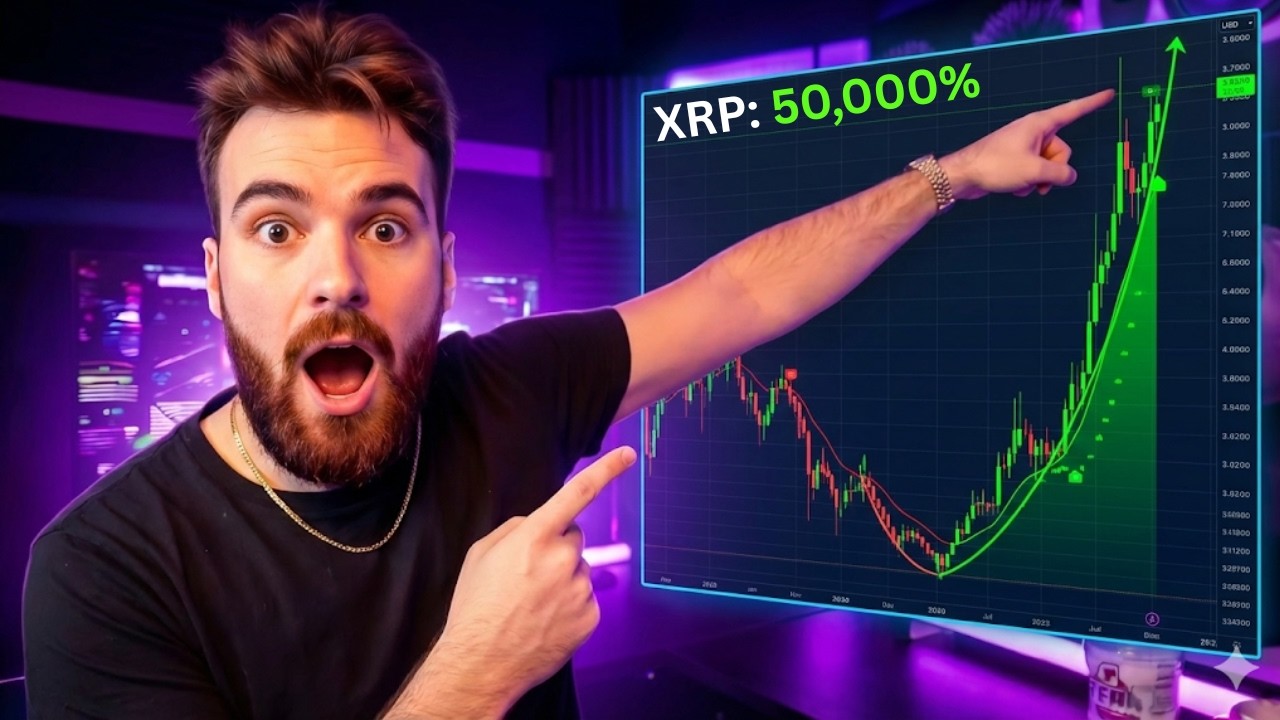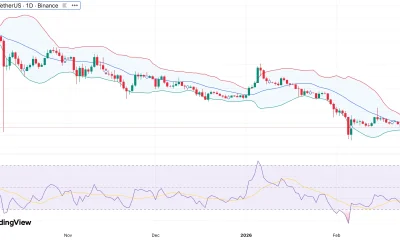Video
Maal o Dolat Ki Dua | 5 Minute Dua For Financial Freedom | Wusat e Rizq Ka Wazifa | Dua For Money

🪔🪔Maal o Dolat Ki Dua | 5 Minute Dua For Financial Freedom | Wusat e Rizq Ka Wazifa | Dua For Money
🌙 Learn It The Easy Way: 10 Ramzan Hafta Ki Dua 🌿
5 Minute Dua For Financial Freedom 💫
Wusat e Rizq Ka Wazifa 🌸
Dua For Money 💖
Ramzan Special Amal For Barkat 🕋
Hafta War Rizq Ki Dua 🌿
Quranic Wazifa For Wealth 💫
Pareshani Se Nijat Ka Amal 🌸
Islamic Remedy For Financial Relief 💖
Barakah In Money & Life 🕋
Spiritual Healing Dua 🌿
Ramzan Mein Rizq Ka Powerful Amal 💫
Protection, Rizq & Sukoon Ki Dua 🌸
🌿 Beginner To Expert:
10 Ramzan Hafta Ka Amal 💫
5 Minute Powerful Dua 🌸
Wusat e Rizq Ka Tested Wazifa 💖
Ramzan Special Tilawat 🕋
Hafta War Barkat Routine 🌿
Durood Sharif Ki Barkat 💫
Quranic Amal For Financial Freedom 🌸
Subha Ya Shaam Ka Zikir 💖
Spiritual Blessings For Mushkil 🕋
Ruhani Amal For Karz Se Nijat 🌿
Blessings Of Quran 💫
Immediate Help Wazifa 🌸
💫 Follow These Steps:
Fajr Ya Maghrib Ke Baad Baith Kar Dua Karein 🌿
3 Martaba Durood Sharif Parhein 💖
Astaghfar 100 Martaba 💫
Surah Al-Ikhlas, Al-Falaq, An-Nas 3 Martaba 🌸
Ayat Ul Kursi Parhein 🕋
Phir Dil Se Wusat e Rizq Ki Dua Karein 💖
Karz Se Nijat Aur Halal Rizq Ki Niyat Karein 🌿
Allah Par Poora Tawakkul Rakhein 💫
10 Ramzan Hafta Special Amal 🌸
Money & Barkat Ki Dua Zaroor Karein 🕋
📖 Recitations Included:
4 Qul 🌿
Durood Sharif 💫
Ayat Ul Kursi 🌸
Astaghfar 💖
Hafta Ki Special Dua 🕋
Ramzan Tilawat 🌿
Quranic Amal For Rizq 💫
Protection Wazifa 🌸
Dua For Money & Freedom 💖
Spiritual Remedy 🌿
🧭 Tips You Shouldn’t Miss:
Ramzan Mein Dua Ki Qabooliyat Zyada Hoti Hai 🌿
Fajr Ke Baad Ya Tahajjud Mein Parhna Behtar Hai 💫
Durood Sharif Se Dua Qabool Hoti Hai 🌸
Rozana Thora Sa Amal Bhi Barkat Lata Hai 💖
Halal Rizq Ki Niyat Zaroor Karein 🕋
Sadaqah Dene Ki Aadat Banayein 🌿
Positive Yaqeen Rakhein 💫
Allah Ki Rehmat Se Mayoos Na Hon 🌸
💥 Pro-Level Guidance:
10 Ramzan Financial Freedom Amal 💫
Islamic Remedy For Rizq & Stability 🌿
Tilawat e Quran 🌸
Durood Sharif 💖
Ayat Ul Kursi 🕋
4 Qul 🌿
Powerful 5 Minute Dua 💫
Karz Se Nijat Ka Nizaam 🌸
Sukoon & Aafiyat Ka Amal 💖
Islamic Spiritual Blessings 🌿
Wazifa For Immediate Relief 💫
Help From Allah 🕋
Subha Ya Shaam Ki Barkat 💖
🔑 Simple & Clear Explanation:
Is video mein 10 Ramzan Hafta Ki Dua — 5 minute ka powerful wazifa — shamil hai jo Allah ﷻ ke fazl se wusat e rizq, paison mein barkat aur financial freedom ka zariya ban sakta hai 💫
Jo log karz, tangdasti, business loss ya paison ki kami ka samna kar rahe hain, un ke liye Ramzan ka ye amal bohat barkat wala ho sakta hai 🌸
Durood Sharif, Astaghfar aur Quranic tilawat 💖 dil ko sukoon deti hain aur Allah ke hukum se rukawatain door hoti hain. Ye 10 Ramzan Special Amal rizq aur stability ka powerful zariya ban sakta hai 🌿
🎧 Is amal ko 10 Ramzan haftay mein zaroor sunein ya parhein. Allah ki rehmat se rizq mein barkat, karz se nijat aur mushkil asaan ho sakti hai 🕋
Is video ko un logon tak zaroor share karein jo financial stress ya paisay ki tangi ka samna kar rahe hon 🌸
Start listening to #RamzanRizqWazifa for protection & blessings.
Follow #WeeklyDuaRoutine daily for rizq, relief & barakah.
Recite with full yaqeen on Allah for maximum spiritual benefits 💖
SUBSCRIBE NOW
https://www.youtube.com/channel/UCDVaWn5Tm7uFMHftrqhAkuQ/featured?s
________________________________________
Contact: contactupedia@gmail.com
Disclaimer:
——————
You can read Disclaimer in the description of this video:
Link: https://youtu.be/Z2oCtvZhsq4
#upedia #adhkar #adhkarussubha #morningdua #dolatkawazifa #rizqkawazifa
Category: Education
License: Standard YouTube License
source
Video
XRP- CEO/Ripple = The Door To A Deal Is Wide Open – XRP vs Microsoft & Amazon – Aussie Dollar & XRPL

SPONSOR INFORMATION:
Buy & Sell Crypto With iTrustCapital
https://www.itrustcapital.com/go/xrparmy
Special Offer: $100 Funding Bonus.
XRP Las Vegas 2026-Get Tickets
https://xrplasvegas.com/
Practical Crypto Security:
https://krisdangerfield.com/
Open A Caleb & Brown Account (Institutional Custody & Personal Rep)
https://xrpwealth589.com
Become An Official Member Of The Freedom Zone
Come On In!
YouTube
https://bit.ly/414dBuO
Patreon
https://bit.ly/4k6GajR
Diversify Your PORTFOLIO with Gulf of America Oceanfront Real Estate.
http://www.gulfofamericaXRP.com
Digital Perspectives Mastermind Group
Digital Perspectives Email
digitalperspectivesnews@gmail.com
#xrp #ripple #bitcoin #ethereum
#paid #promotion #sponsorships The above links are either affiliate or paid promotions and deals.
___________________________________________________________________________
Disclaimer:
I am not a licensed financial advisor. All videos on this channel are intended for entertainment purposes only. You should not buy, sell, or invest in any asset based on what I say in these videos. You should know that investing carries extreme risks. You could lose your entire investment. This is not trading advice and I am in no way liable for any losses incurred.
source
Video
5 Altcoins To EXPLODE In March (My Top Picks)

Sheldon breaks down recent events in the crypto market following the Jane Street manipulation exposé, as Bitcoin and altcoins made significant moves. Is this strategic positioning before a much bigger breakout? He unpacks what’s driving the momentum and what you should be preparing for next. Plus, he’ll share the top altcoins that look primed to explode in March and why timing will be everything.
📺 𝗦𝗛𝗘𝗟𝗗𝗢𝗡 𝗧𝗛𝗘 𝗦𝗡𝗜𝗣𝗘𝗥 – 𝗘𝘅𝗰𝗹𝘂𝘀𝗶𝘃𝗲 𝗣𝗲𝗿𝘀𝗼𝗻𝗮𝗹 𝗬𝗼𝘂𝗧𝘂𝗯𝗲 𝗖𝗵𝗮𝗻𝗻𝗲𝗹!
👉 https://www.youtube.com/@OfficialSniperTrading
🎯 𝗦𝗡𝗜𝗣𝗘𝗥 𝗖𝗟𝗨𝗕 – 𝗧𝗿𝗮𝗱𝗲 𝗦𝗺𝗮𝗿𝘁𝗲𝗿! 𝗪𝗶𝗻 𝘄𝗶𝘁𝗵 𝗦𝘁𝗿𝗮𝘁𝗲𝗴𝘆, 𝗻𝗼𝘁 𝗟𝘂𝗰𝗸!
👉 𝗕𝗲𝗰𝗼𝗺𝗲 𝗮 𝗦𝗻𝗶𝗽𝗲𝗿: https://sniperclub.net/JoinSniperTradingYT
🚀 𝗨𝗟𝗧𝗥𝗔 𝗧𝗥𝗔𝗗𝗘𝗥 – 𝗧𝗵𝗲 𝗠𝗼𝘀𝘁 𝗣𝗼𝘄𝗲𝗿𝗳𝘂𝗹 𝗧𝗿𝗮𝗱𝗲 𝗧𝗿𝗮𝗰𝗸𝗲𝗿!
👉 https://bit.ly/ultra-trader-sheldon
________________________
𝗧𝗥𝗔𝗗𝗘 𝗪𝗛𝗘𝗥𝗘 𝗦𝗛𝗘𝗟𝗗𝗢𝗡 𝗧𝗥𝗔𝗗𝗘𝗦!
⬇⬇⬇⬇⬇⬇
🟦 𝗕𝗬𝗕𝗜𝗧 – 𝗚𝗿𝗮𝗯 𝗮 $𝟱𝟬 𝗦𝗶𝗴𝗻-𝗨𝗽 𝗕𝗼𝗻𝘂𝘀 + 𝗘𝗮𝗿𝗻 𝘂𝗽 𝘁𝗼 $𝟯𝟬,𝟬𝟬𝟬 𝗶𝗻 𝗗𝗲𝗽𝗼𝘀𝗶𝘁 𝗕𝗼𝗻𝘂𝘀𝗲𝘀!
👉 Sign up: https://bit.ly/bybit-sheldon
🟨 𝗪𝗘𝗘𝗫 – 𝗚𝗲𝘁 𝗮 𝗛𝗨𝗚𝗘 𝟱𝟬% 𝗗𝗲𝗽𝗼𝘀𝗶𝘁 𝗕𝗼𝗻𝘂𝘀!!!
💰 Deposit & Trade to claim your 50 USDT BONUS NOW!
👉 Sign up: https://bit.ly/Sheldon_WeeX_welcome
🟩 𝗣𝗜𝗢𝗡𝗘𝗫 – 𝗨𝗻𝗹𝗼𝗰𝗸 𝗮 $𝟭𝟬𝟬 𝗕𝗼𝗻𝘂𝘀 𝗮𝗻𝗱 𝗘𝗮𝗿𝗻 𝘂𝗽 𝘁𝗼 𝟭,𝟬𝟬𝟬 𝗨𝗦𝗗𝗧!
👉 𝗝𝗼𝗶𝗻 𝗡𝗼𝘄: https://bit.ly/pionex-sniper
SILVER Bot – https://share.pionex.com/s/JEFwvNS2?l=en
GOLD Bot – https://share.pionex.com/s/6w5cWwua?l=en
BTC – https://share.pionex.com/s/C9Web8Fz?l=en
ETH – https://share.pionex.com/s/vy47EBHN?l=en
SOL – https://share.pionex.com/s/h6zrg9nS?l=en
SUI – https://share.pionex.com/s/HdpqnueE?l=en
HYPE – https://share.pionex.com/s/ldhBwmxZ?l=en
SOL – https://share.pionex.com/s/d7YG8Tu3?l=en
AVAX – https://share.pionex.com/s/bfT3QLjx?l=en
RENDER Bot – https://share.pionex.com/s/4RKcrkSa?l=en
🟥 𝗕𝗧𝗖𝗖 – 𝗚𝗲𝘁 𝗮 𝗛𝗨𝗚𝗘 𝟭𝟬% 𝗗𝗲𝗽𝗼𝘀𝗶𝘁 𝗕𝗼𝗻𝘂𝘀 & 𝗧𝗿𝗮𝗱𝗲 𝘄𝗶𝘁𝗵 𝗬𝗼𝘂𝗿 𝗕𝗼𝗻𝘂𝘀!!!
👉 𝗡𝗼 𝗞𝗬𝗖! 𝗦𝗶𝗴𝗻 𝘂𝗽: https://bit.ly/BTCC-GoldRush-Sheldon
☑️ Receive up to $10,000 in BONUSES!
⬛️ 𝗚𝗥𝗩𝗧 – 𝗧𝗿𝗮𝗱𝗲 𝘄𝗶𝘁𝗵 𝗦𝗽𝗲𝗲𝗱 𝗮𝗻𝗱 𝗣𝗿𝗶𝘃𝗮𝗰𝘆!
☑️ Earn 10% interest on your total trading account balance!
👉 𝗝𝗼𝗶𝗻 𝗻𝗼𝘄: https://bit.ly/grvt-sheldon
🟧 𝗕𝗟𝗢𝗙𝗜𝗡 – 𝗚𝗲𝘁 𝗩𝗜𝗣𝟭 + 𝗨𝗽 𝘁𝗼 𝗮 $𝟭,𝟬𝟬𝟬 𝗕𝗼𝗻𝘂𝘀 + 𝗮 𝗖𝗵𝗮𝗻𝗰𝗲 𝘁𝗼 𝗪𝗜𝗡 𝟵,𝟰𝟬𝟬 𝗨𝗦𝗗𝗧!
👉 𝗡𝗼 𝗞𝗬𝗖! 𝗡𝗼 𝗩𝗣𝗡! 𝗦𝗶𝗴𝗻 𝘂𝗽: https://blofin.com/invite/Sheldon
🟪 𝗕𝗜𝗧𝗙𝗨𝗡𝗗𝗘𝗗 – 𝗣𝘂𝗿𝗰𝗵𝗮𝘀𝗲 𝗔𝗻𝘆 𝗖𝗵𝗮𝗹𝗹𝗲𝗻𝗴𝗲 𝘁𝗼 𝗨𝗻𝗹𝗼𝗰𝗸 𝗔𝗰𝗰𝗲𝘀𝘀 𝘁𝗼 𝗕𝗶𝗴𝗴𝗲𝗿 𝗧𝗿𝗮𝗱𝗶𝗻𝗴 𝗙𝘂𝗻𝗱𝘀!
👉 𝗦𝗶𝗴𝗻 𝘂𝗽: https://bit.ly/bitfunded_register
🟫 𝗘𝗗𝗚𝗘 𝗫 – 𝗨𝗻𝗹𝗼𝗰𝗸 𝗬𝗼𝘂𝗿 𝗧𝗿𝗮𝗱𝗶𝗻𝗴 𝗘𝗱𝗴𝗲! 𝗧𝗿𝗮𝗱𝗲 𝗮𝗻𝗱 𝗘𝗮𝗿𝗻 𝗣𝗼𝗶𝗻𝘁𝘀!
👉 https://bit.ly/edgex-sheldon
________________________
𝗙𝗢𝗟𝗟𝗢𝗪 𝗦𝗛𝗘𝗟𝗗𝗢𝗡!
⬇⬇⬇⬇⬇⬇
👉 𝗫: https://x.com/Sheldon_Sniper
👉 𝗜𝗻𝘀𝘁𝗮𝗴𝗿𝗮𝗺: https://bit.ly/sniper-insta
👉 𝗔𝗹𝗹 𝗦𝗼𝗰𝗶𝗮𝗹𝘀: https://linktr.ee/snipersheldon
🏆 𝗦𝗡𝗜𝗣𝗘𝗥 𝗚𝗜𝗩𝗘𝗔𝗪𝗔𝗬𝗦!!
👉 Email: sniper.giveaways@cryptobanter.com (mailto:sniper.giveaways@cryptobanter.com)
________________________
👁️🗨️ 𝗖𝗿𝘆𝗽𝘁𝗼 𝗕𝗮𝗻𝘁𝗲𝗿 𝗮𝗯𝗶𝗱𝗲 𝗯𝘆 𝘁𝗵𝗲 𝗳𝗼𝗹𝗹𝗼𝘄𝗶𝗻𝗴 𝗰𝗼𝗱𝗲 𝗼𝗳 𝗰𝗼𝗻𝗱𝘂𝗰𝘁:
👉 https://www.cryptobanter.com/our-ethics/
We take our code of ethics very seriously and have engaged @zachxbt (https://twitter.com/zachxbt) to monitor our progress. If you feel we’re not living up to it and have hard evidence please mail ZachXBT directly at reportcb@protonmail.com (mailto:reportcb@protonmail.com)
⚠️ 𝗕𝗘𝗪𝗔𝗥𝗘 𝗢𝗙 𝗦𝗖𝗔𝗠𝗠𝗘𝗥𝗦 𝗜𝗡 𝗢𝗨𝗥 𝗖𝗢𝗠𝗠𝗘𝗡𝗧𝗦 𝗔𝗡𝗗 𝗖𝗢𝗠𝗠𝗨𝗡𝗜𝗧𝗬 𝗖𝗛𝗔𝗡𝗡𝗘𝗟𝗦
________________________
Crypto Banter is a live-streaming channel that brings you the hottest crypto news, market updates, and fundamentals of digital assets. Join the fastest-growing crypto trading community to get notified on the most profitable trades and the latest crypto market updates & news!!
📝 𝗗𝗶𝘀𝗰𝗹𝗮𝗶𝗺𝗲𝗿:
Crypto Banter is a social podcast for entertainment purposes only.
All opinions expressed by the hosts, guests, and callers should not be construed as financial advice. Views expressed by guests and hosts do not reflect the views of the station. Listeners are encouraged to do their own research.
#TradingBitcoin #TradingAltcoins #CryptoTrading #Sheldon
⏱ 𝗧𝗶𝗺𝗲𝘀𝘁𝗮𝗺𝗽𝘀:
00:00 Bullish Crypto Momentum Today
02:32 Crypto News Today – Jane Street Conspiracy, BTC Dumps
04:11 The Clarity Act Update from Crypto Man Ran
07:00 Quantum Computing Threat to Crypto Explained – Ran Neuner
11:50 Bitcoin Analysis Today – BTC Entries
15:10 Solana Analysis Today – Trading SOL
16:03 Ethereum Analysis Today – Trading ETH
21:00 Short Term Bitcoin Scenarios
24:25 Altcoin Levels to Watch – ETH, SOL, SUI, AVAX
🎬 𝗪𝗮𝘁𝗰𝗵 𝗦𝗵𝗲𝗹𝗱𝗼𝗻’𝘀 𝗙𝗥𝗘𝗘 𝗖𝗿𝘆𝗽𝘁𝗼 𝗧𝗿𝗮𝗱𝗶𝗻𝗴 𝗟𝗲𝘀𝘀𝗼𝗻𝘀:
source
Video
Never Give Up Your Financial Freedom!

Judge Judy shares a powerful warning on The Ellen DeGeneres Show about why financial independence is essential — especially for women. She explains how giving up the ability to earn your own living can destroy equality in a relationship and leave you trapped in unhappy situations.
This tough-love advice is about preparation, self-respect, and teaching the next generation to always have skills that allow them to stand on their own.
If you want real empowerment, freedom, and security in life, this message is a must-hear.
source
Video
Kareena Kapoor helps sister Karisma for daughter & son financial problem #shorts #youtubeshorts

Kareena Kapoor helps sister Karisma for daughter & son financial problem #shorts #youtubeshorts #bollywood #shortvideo #shortsfeed #kareenakapoorkhan #karishma #karismakapoor
source
Video
Tentei Copiar Dinheiro

Contato profissional: neaglegames@gmail.com
Nossas Redes Sociais:
▪ Neox:
📷 https://www.instagram.com/gabrielneox/
🐤 https://twitter.com/gabrielneox_
🎥 https://www.tiktok.com/@gabrielne accccox_
▪ Eagle Trindade:
📷 https://www.instagram.com/eagletrindade/
🐤 https://twitter.com/EagleTrindade
🎥 https://www.tiktok.com/@eagletrindade
source
Video
Biggest Bitcoin Manipulation IN HISTORY

🎙️ SUBSCRIBE TO PERMISSIONLESS PODCAST: @permissionlesspodcast
🚨 ESCAPE THE FIAT SYSTEM (50% OFF): https://t.ly/Ux2F7
👕 SHOP: https://shop.learningcrypto.com
🕊️ SECOND CITIZENSHIPS: https://t.ly/LPQnW
📈 CLAIM $100 (+$30,000) FREE WITH BYBIT: https://partner.bybit.com/b/150821
🚀 GRAB 64% OFF PROTON VPN: https://go.getproton.me/SH1Ak
00:00 – Jane Street Allegations
06:19 – Jane Street Track Record
08:02 – What Comes Next?
#Btc #Bitcoin #Crypto #cryptonews #cryptocurrency #investing
source
Video
If Bitcoin Follows Silver… The Price is Terrifying.

What happens to the price of Bitcoin if it follows SILVER and GOLD like it did in 2017 and 2021? If the same patterns play out this time again, the PRICE of Bitcoin is terrifying if we see a 2026 bull market… but you need to find out why and if this is happening again in 2026!
NoBS Macro – Your Home Of Macro Research 🚀https://www.youtube.com/channel/UCU9XqnucZB-FhC2RlALdomQ
Private Community – Get Started For Free💎https://www.nobscrypto.com.au/free
Bitunix – Trade Crypto & Win Big Cash Prizes💰https://www.bitunix.com/activity/normal/NoBsCrypto1031?vipcode=218m
Phemex – Trade & Earn Cash Prizes📲 https://phemex.com/a/k/NoBsCrypto1
🔒 No BS Crypto Community
Join FREE 👉 https://www.nobscrypto.com.au/free
Membership 👉 https://www.nobscrypto.com.au/pricing
____________________________________________________________
💸 Crypto Deals (No KYC)
Bitunix – Up to $8,000 USDT 👉 https://www.bitunix.com/register?vipCode=218m
Phemex – Earn $700+ 👉 https://phemex.com/a/k/NoBsCrypto1
Caleb & Brown (KYC Required) – Secure Crypto Broker 👉 https://calebandbrown.com/affiliates/…
____________________________________________________________
🔐 Security Essentials
Tangem Wallet 👉 https://tangem.com/pricing/?promocode…
NordVPN – From $3/month 👉 https://nordvpn.com/nobscrypto
____________________________________________________________
🚀 Follow Us
X 👉 https://x.com/noBScrypto
IG / TikTok 👉 @no_bscrypto
*THIS IS NOT FINANCIAL ADVICE. I AM NOT A FINANCIAL ADVISOR AND THIS IS PURELY FOR ENTERTAINMENT PURPOSES ONLY! Please consult your financial advisor BEFORE you make any investment decisions.
source
Video
The XRP Grand Plan & Ripple Is The Next JP Morgan

Buy & Sell Crypto With iTrustCapital
https://www.itrustcapital.com/xrparmy
Get Your Tickets To XRP Las Vegas 2026
http://www.xrplasvegas.com
Open A Caleb & Brown Account(Institutional Custody & A Personal Rep)
Click Here: https://xrpwealth589.com
Become An Official Member Of The Digital Asset Investor Channel
Youtube
https://tinyurl.com/ycx9ases
Patreon
http://www.daixrp.com
Diversify Your PORTFOLIO with Gulf of America Oceanfront Real Estate.
http://www.gulfofamericaXRP.com
Digital Asset Investor Email
digitalassetinvestor2018@gmail.com
#xrp #ripple #bitcoin #ethereum #litecoin
#paid #promotion #sponsorships The above links are either affiliate links or paid promotions and deals.
___________________________________________
Disclaimer:
I am not a licensed financial advisor. All videos on this channel are intended for entertainment purposes only. You should not buy, sell, or invest in any asset based on what I say in these videos. You should know that investing carries extreme risks. You could lose your entire investment. This is not trading advice and I am in no way liable for any losses incurred.
source
Video
Financial Maths Grade 10 | Simple Interest | Determine P

Financial Maths Grade 10 | Simple Interest | Determine P
Do you need more videos? I have a complete online course with way more content. Click here: https://www.kevinmathandscience.com/coursesignup
🟢Follow me on Instagram: https://www.instagram.com/kevinmathscience
source
Video
XRP Triple Digits… *Not What You Think*

Uphold – Best Place To Buy XRP:https://uphold.sjv.io/b3v0Kv
First ledger: https://firstledger.net/?ref=viacD0HE9uvj
X: https://x.com/xrpmickle
Merch!
micklemarkets.myspreadshop.com…
Donate me some XRP 🙂
rDxBFHhgGKYKphFEtoyNvEmujC3ATGRqmN
Become a supporter of Mr. Mickle!
https://www.youtube.com/channel/UC-wi…
#ripple #XRP #Bitcoin #xrpnew #crypto #cryptocurrency
Best crypto to buy now. Best altcoin. Top crypto now. What is Ripple? What Is XRP? How much XRP do you need? How much XRP? XRP Coin. BTC Coin. What just happened to XRP and Ripple. Ripple IPO. When Will Ripple IPO. RLUSD. What is RLUSD
The information contained on YouTube or the Mickle Markets YouTube Channel (“Channel”) is provided for general informational purposes only. The information provided is not intended to be a substitute for professional investment, tax, accounting, or legal advice. Mickle Markets (the “Company”) is not engaging in services as a securities brokerage, investment advisor, tax, accounting, or legal services provider to the viewers of this website, nor is the Company extending any solicitation or offer to the viewers to sell or buy any cryptocurrencies or securities. The viewers should engage their own professional qualified financial, legal, or tax advisor. The Company is not liable to the viewer for any possible claims or damages arising from any decision they make based on the content of YouTube or this Channel. The viewers’ use of YouTube or this Channel and any reliance on the information contained therein is at the viewers’ own risk. The Company makes no representation or warranties about the accuracy or completeness of the information contained on this Channel or YouTube. Any testimonials or descriptions of past trading experiences published on this Channel or YouTube are not typical, not indicative of future results or performances, and are not intended to be a representation, warranty or guarantee that similar results will be obtained. Any links or references to external sources are provided solely for convenience and do not necessarily imply that the Company endorses, sponsors, promotes, or is affiliated with the external sources.
source
-

 Fashion3 days ago
Fashion3 days agoWeekend Open Thread: Iris Top
-

 Politics4 days ago
Politics4 days agoITV enters Gaza with IDF amid ongoing genocide
-

 Tech2 days ago
Tech2 days agoUnihertz’s Titan 2 Elite Arrives Just as Physical Keyboards Refuse to Fade Away
-

 Business6 days ago
Business6 days agoTrue Citrus debuts functional drink mix collection
-
Sports3 days ago
The Vikings Need a Duck
-

 Crypto World7 days ago
Crypto World7 days agoXRP price enters “dead zone” as Binance leverage hits lows
-

 NewsBeat3 days ago
NewsBeat3 days agoDubai flights cancelled as Brit told airspace closed ’10 minutes after boarding’
-

 NewsBeat5 days ago
NewsBeat5 days agoCuba says its forces have killed four on US-registered speedboat | World News
-

 Tech7 days ago
Tech7 days agoUnsurprisingly, Apple's board gets what it wants in 2026 shareholder meeting
-

 NewsBeat5 days ago
NewsBeat5 days agoManchester Central Mosque issues statement as it imposes new measures ‘with immediate effect’ after armed men enter
-

 NewsBeat3 days ago
NewsBeat3 days agoThe empty pub on busy Cambridge road that has been boarded up for years
-

 NewsBeat2 days ago
NewsBeat2 days ago‘Significant’ damage to boarded-up Horden house after fire
-

 NewsBeat2 days ago
NewsBeat2 days agoAbusive parents will now be treated like sex offenders and placed on a ‘child cruelty register’ | News UK
-

 NewsBeat6 days ago
NewsBeat6 days agoPolice latest as search for missing woman enters day nine
-

 Entertainment22 hours ago
Entertainment22 hours agoBaby Gear Guide: Strollers, Car Seats
-

 Business5 days ago
Business5 days agoDiscord Pushes Implementation of Global Age Checks to Second Half of 2026
-

 Business4 days ago
Business4 days agoOnly 4% of women globally reside in countries that offer almost complete legal equality
-

 Tech4 days ago
Tech4 days agoNASA Reveals Identity of Astronaut Who Suffered Medical Incident Aboard ISS
-

 Crypto World6 days ago
Crypto World6 days agoEntering new markets without increasing payment costs
-
Politics2 days ago
FIFA hypocrisy after Israel murder over 400 Palestinian footballers









